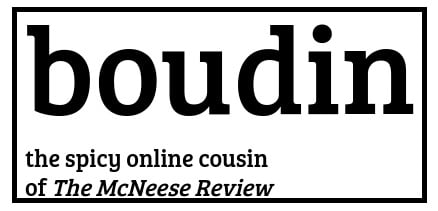A eulogy for the rare-Earth hypothesis & The value of pointless activity: a proof
Michael Galko
__________
A eulogy for the rare-Earth hypothesis
Walking on the beach as a child, trying to
estimate the grains of sand underfoot or
on the little stretch just next to us, on the
whole beach, on all the beaches wrapping
around North America… And then imagining
if each grain were a star, some of them
with planets and asteroids, some of them
with no body to give them the love of an
orbit. When I first heard this idea, that
Earth-like planets might be exceedingly
rare, because of the required type of star,
because of the required distance from said
star, the optimal radiation intensity, all
the specific factors that had to come, like
a miracle, together, I thought quite simply–
Bah!
Even as a child I thought this, rudely so.
I looked up into the night sky, populated,
even in the city, with such a sparse
abundance of light, and resisted– it cannot
be. Just among the stars I could see, I figured,
there must be ten Earths? A hundred? A
thousand? But surely not none. It was
a math problem, an exercise in probability.
There had to be bounds of what was
permissible for a habitable planet, for the
growth, from naught, of life. These bounds
had to be more broad than we could imagine.
So now, as an adult, but surely no astronomer,
I am gratified, nearly weekly, by the reports
of new exoplanets, deduced from patterns–
Ha!
of diffraction, the splitting and bending of
light like little rainbows that say, loudly–
Life! Or at least the possibility of life.
At first it was a trickle, and some were so
far away, at the edges of what a glass eye could
see. But now, they creep in, and grow varied
in their orbits, in the type of stars upon which
they are codependent, in their equators, and even
in the magical distance from these home stars.
The most recent is a mere four light years
away, and at night, looking at the shroud of
pinpoints through the city-glare, I try to think
if we will ever be able to get there, or, quickly
strangling our home-planet, our own Earth,
whether we will even deserve to, if we could.
Nah.
__________
The value of pointless activity: a proof
the lone angler
at the breachway’s limit–
each cast
a forceful parabola–
their grand arcs
waving to an empty sea–
proving
math is beautiful
for its own sake–
even when the ocean
personifies
the empty set
__________
Michael J. Galko is a scientist and poet who lives and works in Houston, TX. He was a finalist in the 2020 Naugatuck River Review and the 2022 Bellevue Literary Review poetry contests. Recent poems appear in Stillwater Review, New Plains Review, Spillway Magazine, Raven’s Perch, Atlanta Review, and Rockvale Review, among other journals.
__________

To learn more about submitting your work to Boudin or applying to McNeese State University’s Creative Writing MFA program, please visit Submissions for details.
Posted in Universal Language July '25 and tagged in #boudin, #poetry
